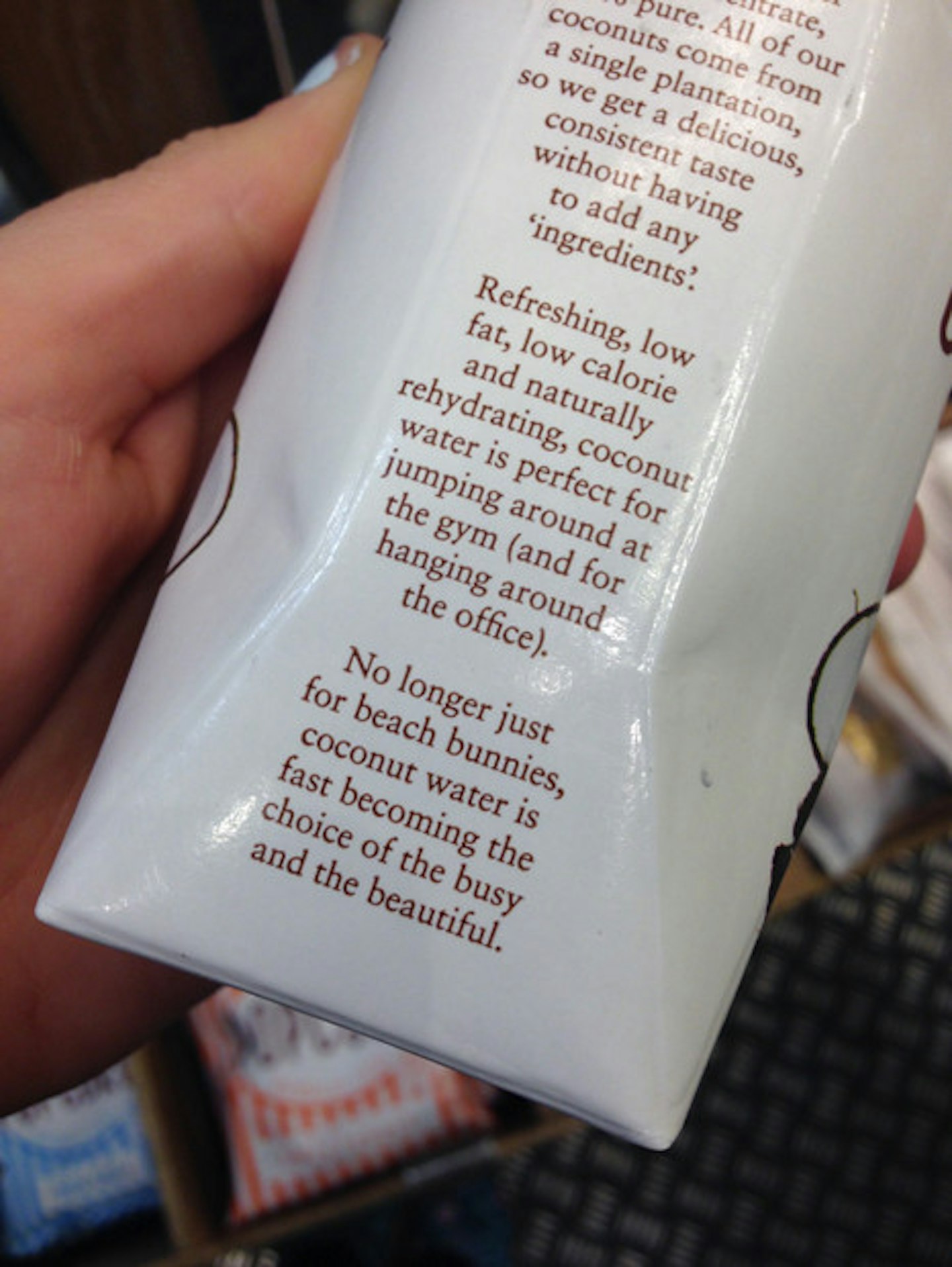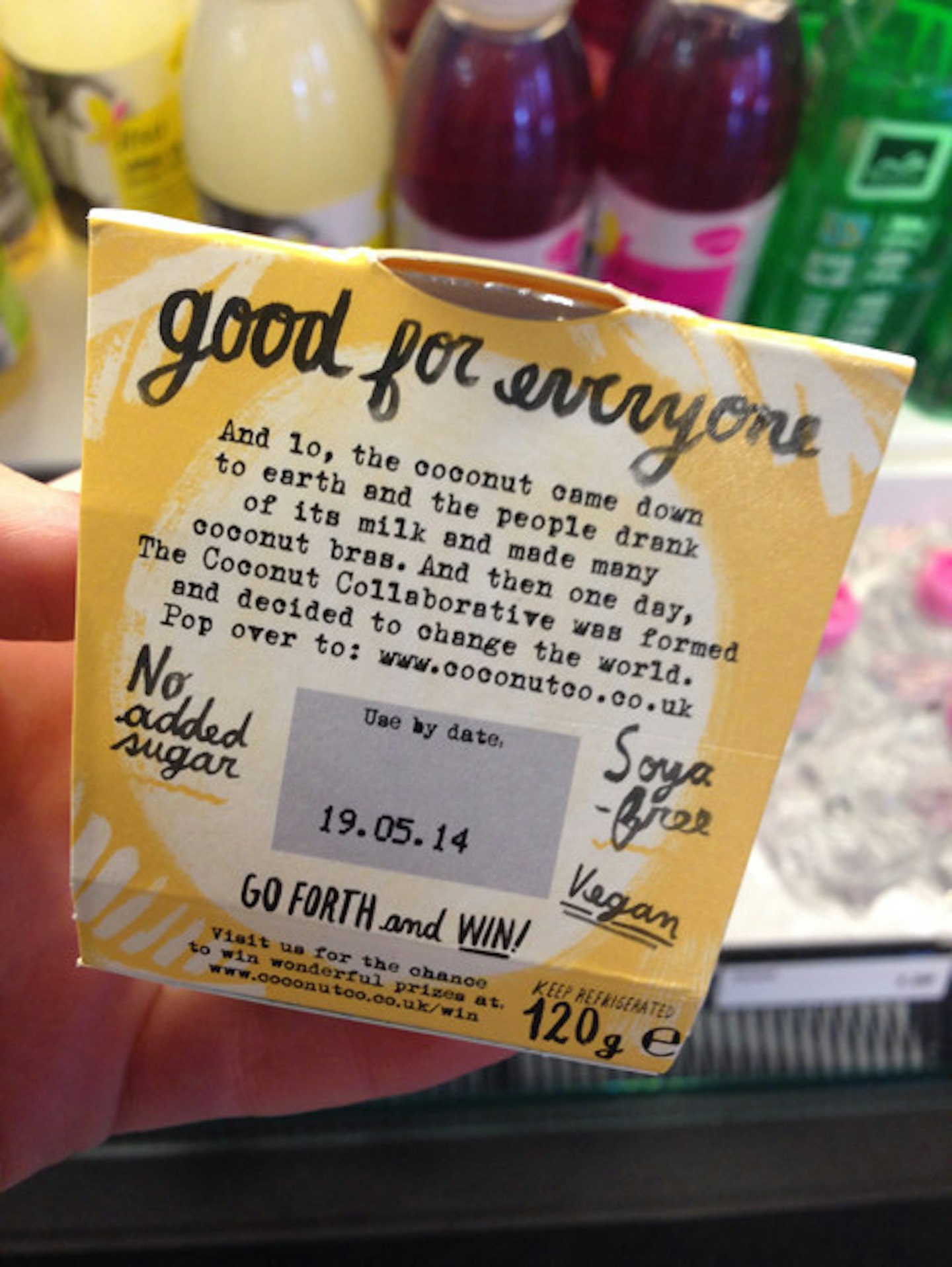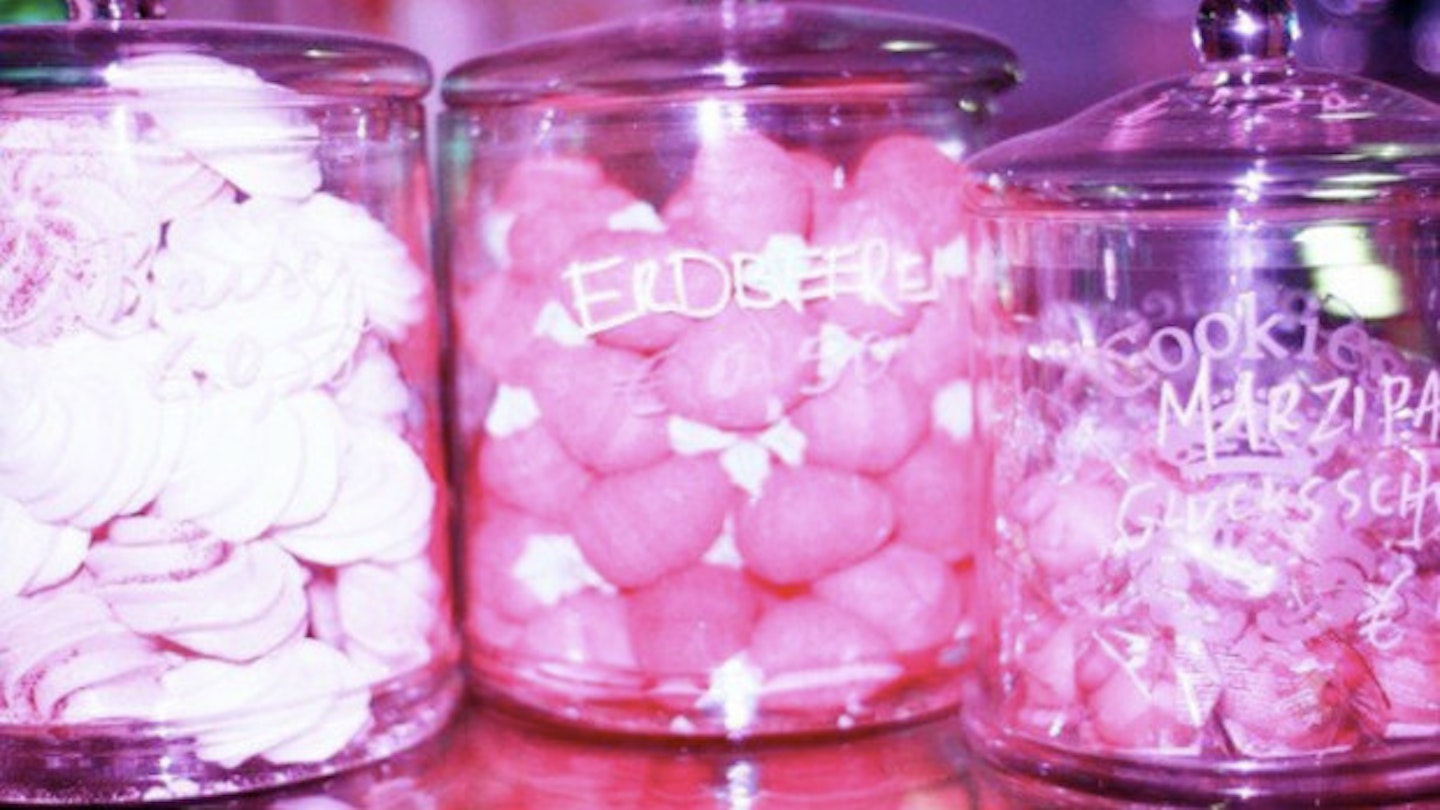We might be independent adult women who can choose what we eat, when we eat it, and how to stop missing our mouths without an accompanying cry of ‘Open wide, here comes the broccoli aeroplane.’ But scientists have discovered we’re much more likely to eat extra portions if food comes in the shape of a dinosaur, or if we’re serving ourselves with some sort of adorable fluffy spoon.
The findings, published this week in the Journal Of Consumer Research, show that inanimate cute objects tap into our reward systems, ‘sparking ideas of playfulness that results in overindulgence and general poor choices’. Well, that’s enough to put us right off our Pom Bears.

Most of the time, I think we own our ‘poor choices'’ We understand that biscuits that wink at us and ice cream shaped like feet are being marketed to kids, rather than us. But we will continue to eat them because they’re delicious.
However, there’s a new wave of patronising packaging that seems to be specifically targeting us with its faux friendliness. It’s as if the diet industry has spent the last few decades working to make women frightened of food, and it’s now trying to tempt us back by promising to keep us safe from everything we’re paranoid about.
We’re not the first to notice the worst offenders, with journalists Lucy Sweet and Eva Wiseman both taking on the top tales of marketing gone nauseatingly wrong, after the ‘too cute to live’ labels were called out on the brilliant brand-shaming blog Wackaging.
But they’re right. A smoothie sold with a tiny bobble hat on the lid is mildly irritating. A salad that has a description of the Bikram retreat and meditation course that inspired the company to combine lettuce and cucumber is going to make me feel every shade of human inadequacy that it is possible to experience. It would be less traumatic if Gwyneth Paltrow published a post on Goop publicly throwing shade on my inefficient gym routine.
For lunch, I consumed a ‘butterfly light’ chicken teriyaki dish and a packet of crisps that ‘congratulated’ me on discovering it as I ripped it open
For lunch, I consumed a ‘butterfly light’ chicken teriyaki dish, a packet of crisps that ‘congratulated’ me on discovering it as I ripped it open and a carton of coconut water, which promised it contained ‘No fat (means bikini friendly)’. It’s enough to make me strip down to my knickers, run out into the street and through the doorway of the nearest Gregg’s so I can visibly and violently eat a rage pasty.
The passive aggressive shaming also excludes men from partaking in a healthy infusion of electrolytes – or at least the ones who don’t turn up to the beach in women’s swimwear.
Mind you, it’s worth mentioning that Dude Food has a bit of an image problem, too. The Ginsters Feed The Man social media campaign didn’t just exclude the other 50 per cent of the population that sometimes buys its food from garage forecourts – it cemented the idea that junk is masculine, and healthy options are feminine.
Pot Noodle and Rustlers have run similar ads reinforcing the idea that food is gendered. In the same way that food is marketed in a way that forces women to overthink their choices (or at least make sure they’re ‘butterfly light’), you can almost hear Danny Dyer’s voice as you read the packaging on a pasty. It’s saying, ‘Go on! Don’t read the nutritional info, that’s a mug’s game! Fahkin ’ave it!’

When I suffered from anorexia, every choice I had to make about food sent me spiralling into an emotional meltdown. I’m better now, but the idea that some food is ‘bad’ still haunts me, and being praised and patronised by my edamame beans takes me right back to the days when I was thrilled if I managed to stick to my all-carrot diet, and believed bread to be worse than heroin.
Tediously specific, faux naïf instructions and illustrations aren’t just mildly irritating. They’re stealthily reinforcing our body image issues and using a series of promises and punishments to trick us into handing over all our money in order to become the women we’re told we should want to be.
I don’t want to be sold a lifestyle. I don’t want to ‘eat pretty’ or ‘feel naughty’, or be told my lunch makes me weird, wacky or wise. I just want a bloody sandwich.
Follow Daisy on Twitter @NotRollerGirl
Picture: Maya Manwaring
This article originally appeared on The Debrief.
